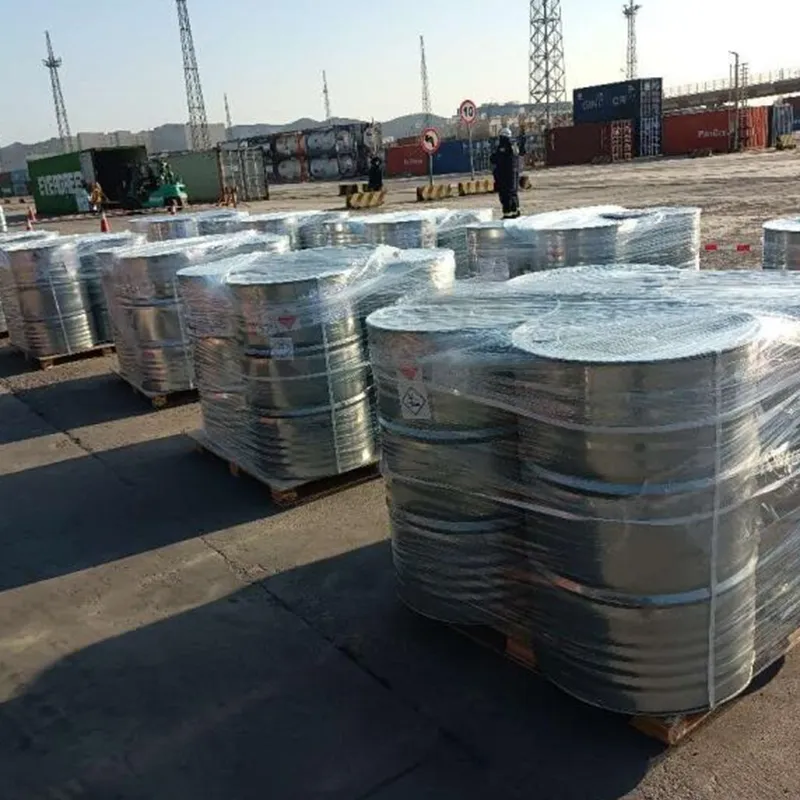
Risks and Safety Concerns of Sodium Benzoate in Food and Products
Understanding the Dangers of Sodium Benzoate
Sodium benzoate is a widely used preservative that can be found in many processed foods, beverages, and personal care products. It is derived from benzoic acid and is used primarily for its ability to inhibit the growth of molds, yeasts, and some bacteria in acidic conditions. While sodium benzoate is generally recognized as safe (GRAS) by regulatory agencies like the U.S. Food and Drug Administration (FDA), there are concerns surrounding its safety that warrant attention.
One major concern revolves around the formation of benzene, a known carcinogen, when sodium benzoate is exposed to certain conditions. This is particularly relevant when sodium benzoate is combined with ascorbic acid (vitamin C) and exposed to light and high temperatures. Under these conditions, benzene can be formed through a chemical reaction, raising alarms about the potential health risks associated with consuming beverages that contain both additives. Research has shown that while the levels of benzene formed in these situations are usually low and often within safety limits, regular exposure over time may still pose health risks, particularly for vulnerable populations such as children.
Moreover, recent studies suggest that sodium benzoate might have other adverse health effects beyond its association with benzene. Some research has pointed towards potential links between sodium benzoate consumption and hyperactivity in children. In certain studies, children exposed to high levels of artificial food colorings combined with sodium benzoate exhibited increased hyperactivity. These findings have fueled debates on the safety of food additives in general and have encouraged parents to be more cautious about the ingredients in their children's diets.
sodium benzoate dangerous

Another aspect to consider is the potential for allergic reactions
. Although rare, some individuals may be sensitive to sodium benzoate, leading to symptoms ranging from skin rashes to respiratory issues.Given the potential dangers associated with sodium benzoate, consumers should be vigilant about ingredient lists on food and beverage labels. Reducing the intake of processed foods and seeking out products with fewer additives can be beneficial for overall health. Furthermore, advocacy for clearer labeling and more comprehensive safety studies could contribute to better consumer awareness and protection.
In conclusion, while sodium benzoate serves as a useful preservative in many products, awareness of its potential dangers is essential. Consumers must remain informed and cautious about their dietary choices, particularly regarding processed foods that may contain this controversial ingredient.
-
Understanding Synthetic Rubber OptionsNewsApr.27,2025
-
Trichloroisocyanuric Acid: Essential for Clean and Safe WaterNewsApr.27,2025
-
Sodium Dichloroisocyanurate: Key to Safe Water TreatmentNewsApr.27,2025
-
Sodium Acid Pyrophosphate: Essential in Modern Food ProcessingNewsApr.27,2025
-
Essential Water Treatment ChemicalsNewsApr.27,2025
-
Denatured Alcohol and Its Industrial UsesNewsApr.27,2025
-
The Versatile Uses of Sodium BicarbonateNewsApr.24,2025
Hebei Tenger Chemical Technology Co., Ltd. focuses on the chemical industry and is committed to the export service of chemical raw materials.
-

view more DiethanolisopropanolamineIn the ever-growing field of chemical solutions, diethanolisopropanolamine (DEIPA) stands out as a versatile and important compound. Due to its unique chemical structure and properties, DEIPA is of interest to various industries including construction, personal care, and agriculture. -

view more TriisopropanolamineTriisopropanolamine (TIPA) alkanol amine substance, is a kind of alcohol amine compound with amino and alcohol hydroxyl, and because of its molecules contains both amino and hydroxyl. -

view more Tetramethyl Thiuram DisulfideTetramethyl thiuram disulfide, also known as TMTD, is a white to light-yellow powder with a distinct sulfur-like odor. It is soluble in organic solvents such as benzene, acetone, and ethyl acetate, making it highly versatile for use in different formulations. TMTD is known for its excellent vulcanization acceleration properties, which makes it a key ingredient in the production of rubber products. Additionally, it acts as an effective fungicide and bactericide, making it valuable in agricultural applications. Its high purity and stability ensure consistent performance, making it a preferred choice for manufacturers across various industries.











